The eight lesser-known football World Cup heroes
They aren’t called Maradona, Pele or Zidane. But they made a name for themselves on football’s greatest stage.

As we move closer to the 2022 FIFA World Cup, fans across the world will reminisce about legends of the game, including Diego Maradona, Pele, Zinedine Zidane and Ronaldo.
The effect they had on previous tournaments, and the rest of the football calendar, is immense.
Keep reading
list of 4 itemsThe 10 football World Cup heroes
How much do you know about the World Cup in Qatar? Take our quizThis article will be opened in a new browser window
Can an African team reach the World Cup 2022 semi-finals?
But, as special as those icons are, the World Cup has helped produce many inspiring stories that have written lesser-known players into footballing history.
Here are eight World Cup cult heroes who are often fondly remembered for what they achieved on the biggest international stage in the world of football.
Fabio Grosso – Italy
The hero of Italy’s 2006 victory came from an unlikely source in left-back Fabio Grosso.
Manager Marcello Lippi’s decision to start Grosso at the back paid off. Grosso won a last-minute penalty against Australia in the round-of-16 which Francesco Totti converted, sending the Italians into the quarter-finals. He then scored a 119th-minute extra-time winner against Germany in the semi-finals, his curling strike passing German goalkeeper Jens Lehmann.
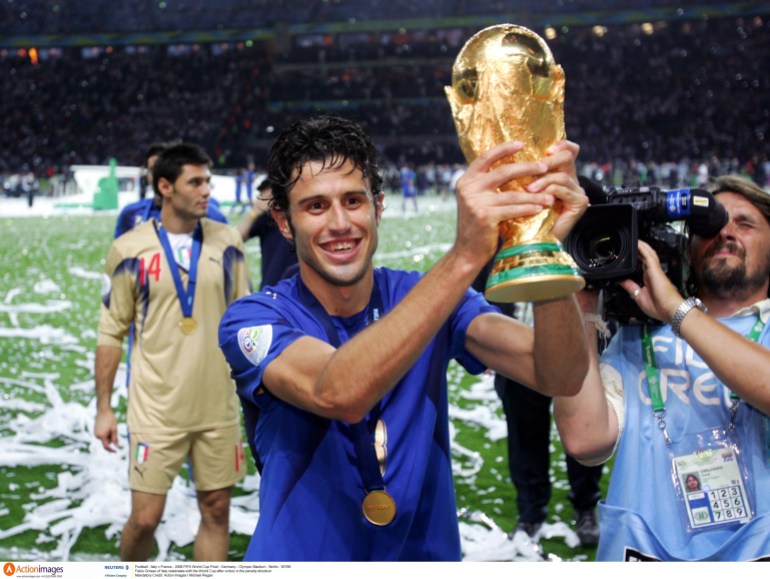
Grosso went on to score the winning penalty in the final shootout against France, helping Italy lift their fourth World Cup trophy.
Admired across Italy, in 2006 he was awarded the Order of Merit of the Italian Republic, the highest accolade in the country.
Grosso went on to play for Inter Milan, Lyon and Juventus before hanging up his boots in 2012. Now 44, he is the manager of Serie B side Frosinone.
Tim Krul – Netherlands
Goalkeeper Tim Krul sealed the Netherlands’s 4-3 victory over Costa Rica in the 2014 quarter-finals.
As the game entered the final minute of extra time, Dutch coach Louis van Gaal decided to substitute Krul for Jasper Cillessen for the penalty shootout.
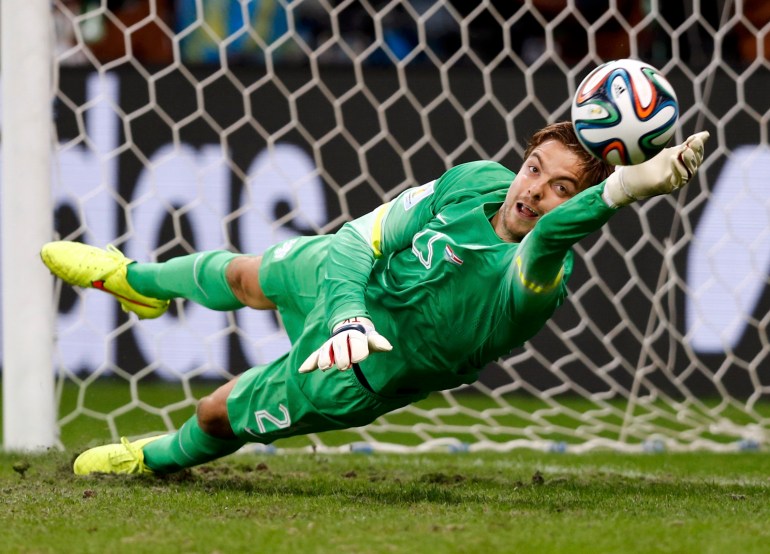
Krul saved two penalties and sent the Netherlands into the semi-finals. He remains the only goalkeeper to ever be subbed on solely for a penalty shootout in the World Cup.
Now 34, Krul has since had a successful goalkeeping career in England with Newcastle United and Norwich City.
Paolo Rossi – Italy
Forward Paolo Rossi was not your typical striker at the 1982 World Cup.
His slight build, frail stature and earlier match-fixing allegations stirred controversy when he was called up for the national side.
But he went on to score a memorable hat-trick against Brazil in a 3-2 win to advance to the semi-finals where he scored both of Italy’s goals against Poland.
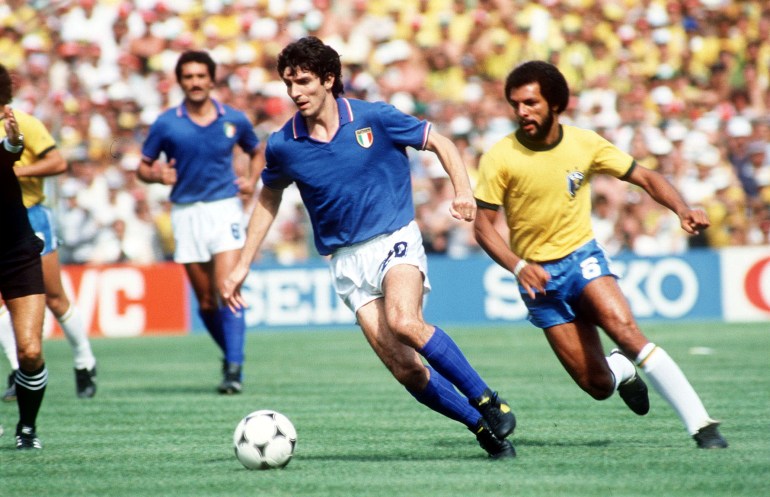
His hero status was secured in the finals as Italy beat Germany 3-1, with Rossi scoring the opening goal. He finished the tournament as the top goal scorer and won the Golden Boot.
Rossi scored three goals at the 1978 World Cup. But two years later, he was caught up in the Totonero match-fixing scandal while playing for Perugia and was banned from football for three years. With his sentence shortened to two years, Juventus decided to sign him in 1982, a move that drew strong criticism as he was deemed unfit and not good enough to play for his country.
Rossi retired from football in 1987 and became a television pundit along with delving into the real estate business. He died in December 2020 after a battle with lung cancer.
Oleg Salenko – Russia
The most underrated story from the 1994 World Cup is probably that of Russian forward Oleg Salenko.
The former Valencia and Rangers’ forward only played eight games for Russia, scoring six goals – five of them came in one match against Cameroon in a 6-1 victory, setting a World Cup record for the most goals in a single game.
He scored one more goal in a 3-1 defeat of Sweden, finishing the tournament as joint top scorer despite only playing three games.
Salenko remains the only player to win the Golden Boot in a team eliminated at the group stage.
After retiring in 2001, Salenko, now 53, went on to manage the Ukraine national beach football team in 2003, before stepping back from the sport to focus on his business ventures.
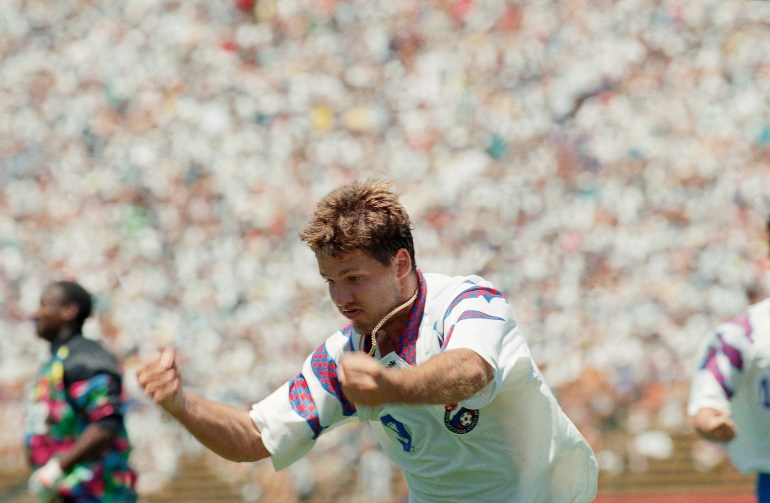
Josimar – Brazil
Brazilian right-back Josimar was uncapped by Seleção when he was selected for the 1986 World Cup squad.
Unknown outside Brazil, he was picked by coach Telê Santana as a back-up. The defender was called into action for Brazil’s final group game against Northern Ireland after first choice right-back Édson was injured.
Despite making his international debut, Josimar’s strike left Northern Ireland’s goalkeeper Pat Jennings helpless. His goal in the next game helped Brazil dispatch Poland 4-0.
Josimar played for Botafogo until 1988 before moving to Spanish side Sevilla. The right-back returned to Brazil where he played in the lower leagues until his retirement in 1997. Now 61, he’s an assistant manager at Botafogo.
Diego Forlan – Uruguay
Forward Diego Forlán is remembered for his outstanding performance at the 2010 World Cup in South Africa. The former Atlético Madrid and Manchester United player finished as joint top-scorer and was also awarded the Golden Ball as the tournament’s best player.
Forlán helped Uruguay reach the semi-finals for the first time since 1970. Uruguay’s Number 10 was one of the few players at the tournament able to use the Jabulani ball effectively.
The Jabulani triggered controversy with many players criticising its unpredictability and awkwardness. But Forlán requested an Adidas Jabulani ball three months before the event, practising and working on free kicks.
His preparation paid off, as he scored goals against South Africa, Ghana, the Netherlands and Germany.
Forlán continued to play until 2018 before retiring at Hong Kong club Kitchee. Now 43, he has most recently managed Uruguayan side Atenas.
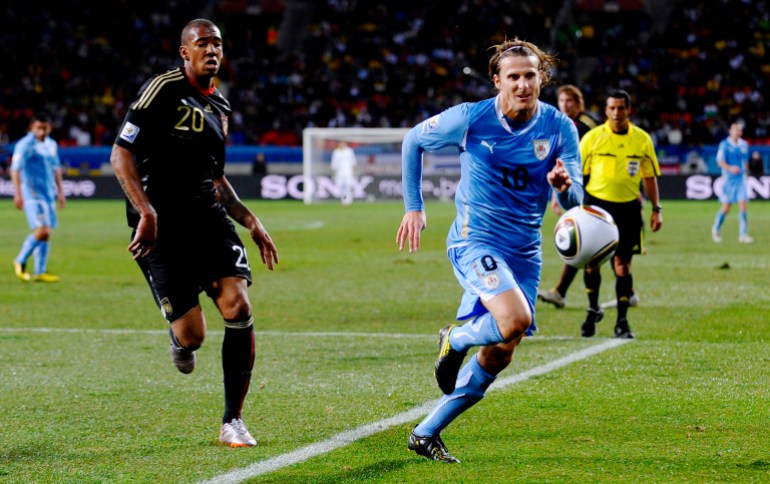
Roger Milla – Cameroon
Roger Milla is regarded as one of the trailblazers of African football.
The Cameroonian forward’s four goals at the 1990 World Cup, when he was 38, helped his country reach the quarter-finals, the furthest an African side has reached at a World Cup.
Milla also featured at the 1994 World Cup. At 42, he scored against Russia, making him the oldest player to ever score a World Cup goal.
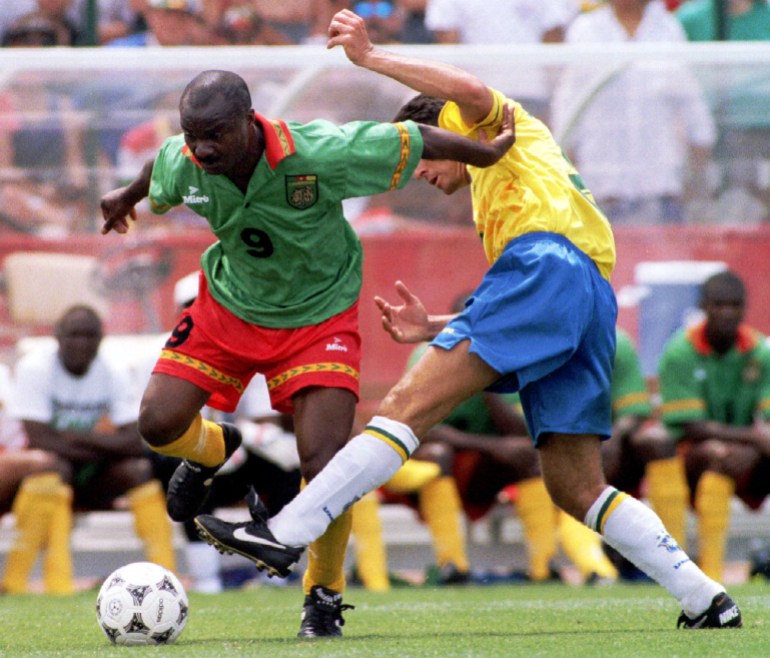
Milla retired from football in 1996 and managed Cameroonian club Tonnerre between 2007 to 2011.
The 70-year-old is now an itinerant ambassador for various African causes, such as promoting environmental issues on the continent and works with groups such as the World Wide Fund for Nature.
Just Fontaine – France
During the 1958 World Cup in Sweden, French striker Just Fontaine scored 13 goals, the most in a single tournament.
Known for his clinical finishing and his two-footedness, Fontaine had only played five games in as many years for France prior to being called up for the 1958 event.
He scored in all six games France played as they finished in third place, beating West Germany in the playoff, in which Fontaine scored four goals. The striker also scored a hat-trick against Paraguay, braces against Yugoslavia and Northern Ireland and one goal against Brazil and Scotland.
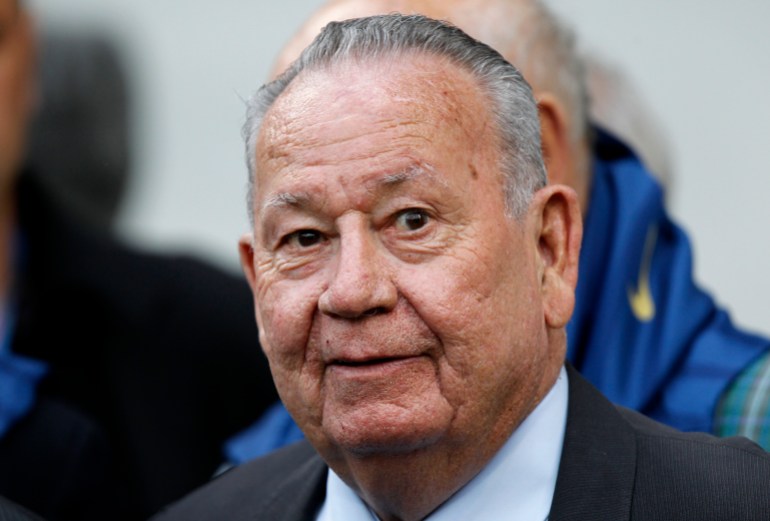
The closest any player has managed to matching Fontaine’s record was Ronaldo in 2002, who scored eight goals en route to Brazil lifting their fifth World Cup trophy.
Fontaine’s career was cut short because of a knee injury, forcing him to retire at 28.
He went on to manage France, Paris Saint-Germain and Morocco. Fontaine, now 89, co-founded the National Union of Professional Football Players – the main trade union for professional football players in France – in 1961 with former footballer Eugène N’Jo Léa.
